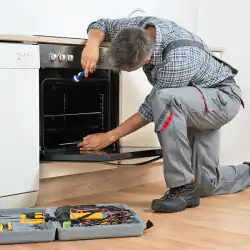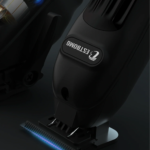Your home is filled with complex machinery and appliances that make daily life comfortable and convenient. From the HVAC system that keeps you comfortable year-round to the washing machine that handles endless loads of laundry, this equipment represents a significant financial investment. Protecting that investment through regular, proactive maintenance not only saves you from the headache of unexpected breakdowns but can also significantly extend the lifespan of these essential items.
Delaying maintenance might seem harmless, but it often leads to decreased efficiency and premature failure. For instance, the Department of Energy notes that neglecting basic HVAC maintenance can result in a 5% to 15% drop in performance and a notable increase in energy consumption. By adopting a simple maintenance routine, you can keep your equipment running smoothly for years, reduce your utility bills, and avoid the high costs of emergency repairs or full replacements. This guide offers six practical steps to help you get the most out of your home’s most important equipment.
1. Stick to a Regular Cleaning Schedule
Dust, dirt, and debris are the primary enemies of mechanical and electronic equipment. Over time, buildup can clog filters, block vents, and cause components to overheat, forcing the system to work harder than necessary. This added strain leads to increased wear and tear and a shorter operational life.
Creating and adhering to a consistent cleaning schedule is one of the most effective ways to combat this. For your HVAC system, this means cleaning or replacing filters every one to three months. A clean filter allows for optimal airflow, improving efficiency and indoor air quality. For appliances like refrigerators, vacuum the condenser coils on the back or bottom at least twice a year to help the unit dissipate heat effectively. Don’t forget smaller items; cleaning the lint trap in your dryer after every use prevents a fire hazard and helps it run more efficiently.
2. Pay Attention to Seals and Hoses
Gaskets, seals, and hoses are critical components that often go unnoticed until a problem arises. In appliances like refrigerators, dishwashers, and washing machines, these parts prevent leaks and ensure the equipment maintains the correct pressure and temperature. Over time, rubber and plastic can become brittle, crack, or loosen, leading to water damage or a loss of efficiency.
Periodically inspect these components for any signs of wear, such as cracks, stiffness, or visible leaks. For refrigerators and freezers, test the door seal by closing it on a dollar bill. If you can pull the bill out easily, the seal is weak and likely needs replacing. A compromised seal allows cold air to escape, forcing the compressor to run constantly. Similarly, check the water inlet hoses on your washing machine for bulges or cracks and consider replacing standard rubber hoses with more durable braided steel ones every five years.
3. Ensure Proper and Level Placement
Where and how your equipment is installed can have a surprisingly large impact on its longevity. Appliances that vibrate during operation, such as washing machines and dryers, need to be on a solid, level surface. An unbalanced machine will shake excessively, putting stress on its internal components, including drums, motors, and bearings, which can lead to premature failure.
Use a level to check your appliances and adjust the feet as needed to ensure they are stable. Also, consider the ventilation needs of your equipment. Refrigerators, freezers, and electronics require adequate space around them for air to circulate and dissipate heat. Placing them in a tight enclosure or against a wall can trap heat, forcing the cooling systems to work overtime and shortening their lifespan.
4. Don’t Overload Your Machines
Pushing your equipment beyond its intended capacity is a guaranteed way to shorten its life. Overloading your washing machine or dishwasher might seem like a time-saver, but it puts significant strain on the motor, belts, and agitator. When a washing machine is too full, clothes don’t get properly cleaned, and the machine struggles to spin, which can damage the motor and suspension. A dishwasher packed too tightly won’t circulate water effectively, resulting in dirty dishes and forcing you to run another cycle.
Adhering to the manufacturer’s guidelines for load size is essential. If you’re unsure, a good rule of thumb for a front-loading washer is to fill it about three-quarters full, while a top-loader should not be filled past the agitator. Following these simple rules will not only lead to better performance but will also protect the internal mechanics of your appliances from unnecessary stress.
5. Address Minor Issues Immediately
Small problems tend to become big, expensive ones if ignored. A strange noise, a minor leak, or a slight decrease in performance are often early warning signs of a more significant issue. Addressing these symptoms promptly can often prevent a complete system failure.
For example, if you hear your refrigerator making a new, unusual sound, it could be a sign of a failing compressor or a malfunctioning fan. Investigating it early might lead to a simple, inexpensive repair. This proactive approach applies to all home systems. For instance, if you notice your garage door is struggling to open or is making grinding noises, it could be an issue with the springs or opener. Waiting until it fails could leave you with a much larger repair bill and a car trapped in the garage. For complex systems like these, consulting a professional for a garage door installation in Ogden or your local area can ensure the problem is diagnosed and fixed correctly, preventing further damage.
6. Schedule Professional Tune-Ups
While there is much you can do on your own, some equipment requires the expertise of a trained professional. Your HVAC system, in particular, benefits immensely from an annual professional tune-up. A technician can perform tasks that go beyond a simple filter change, such as cleaning evaporator and condenser coils, checking refrigerant levels, and inspecting electrical connections.
These inspections ensure the system operates safely and at peak efficiency. According to industry experts, regular professional maintenance can extend the life of an HVAC system by several years. Think of it like a regular check-up for your car; it’s a small investment that pays off by preventing costly breakdowns and ensuring your equipment lasts as long as possible. The same principle applies to other complex systems, like water heaters and furnaces, where a professional can spot and resolve issues you might not be equipped to handle.








